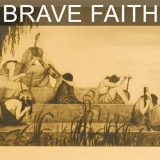Every Breath We Draw–Through It All, Through time–Is Hallelujah

What happens when an idea flops? What happens when something you have worked so hard on goes absolutely nowhere?
In the late 70s and early 80s Leonard Cohen spent years trying to write the song “Hallelujah” until it got to a point where he thought it was right. He fills pages and pages with different verses. And he finally has what he thinks is the right four. He takes the song into the studio as a part of recording his album Various Positions. And he takes “Hallelujah” and puts an orchestra and a choir behind it. There’s a quick melodic baseline behind the lyrics and each verse crescendos to a choir singing the refrain of repeating Hallelujahs. It’s nothing like the version you’ve heard, trust me. The song is dramatic, at times flirting with being over the top and cheesy. But the lyrics are beautiful and the final verse finishes with
“Even though it all went wrong, all stand before the Lord of Song with nothing on my lips but Hallelujah.”
Cohen finishes recording the album and it gets sent up to the executives at his label. And the label scraps the album. They hate it. They refuse to release it. It eventually gets released overseas and a small indie label buys the rights to release it in the US. Which allows the record to get some play here but virtually no one notices or talks about the song “Hallelujah.”
Except for Bob Dylan. (Remember Advent Week 1 story?)
Bob Dylan compliments Cohen on the song and even records a version of it himself. Cohen then takes “Hallelujah” on the road continuing to tinker with the song and the lyrics. He slows it down. He turns it into a dirge. He puts in new verses, swapping out others. He records it on a live to tape performance on Austin City Limits and it gets cut from the show. But as he continues touring he continues to gain some notoriety. He does some TV too. And eventually in the late ‘80s/early ‘90s a French magazine Les Inrockuptibles wants to produce an album of Leonard Cohen’s music sung by other artists as a way of showcasing Cohen’s impact on rock music. REM, the Pixies, among others recorded songs for the album.
Lo and behold the final song on this tribute album is “Hallelujah” sung by John Cale, who was one of the founding members of Velvet Underground. When Cale was getting ready to record his version of the song he reached out to Cohen to get the lyrics. Cohen faxes him fifteen pages of verses! That’s how much this song had tormented and obsessed Cohen. Cale takes the first two verses from Cohen’s original and then adds in three more, presumably from the 15 pages of verses Cohen sent him.
Cale’s version becomes the one that sticks. It becomes canon. Rather than being as overtly spiritual, Cale’s version is more about someone who has become beleaguered and beaten down from the many ways our experience of love and relationships can hurt more than give life (notice the symbolism he chooses for his video). And yet still he sings the Hallelujah.
Cale sings as if the only hope he has left is a hope against hope. A fleeting chance that his search for goodness and love in this world won’t turn up empty. These are things that were present in Cohen’s original but are amplified and brought to the center in Cale’s.
That is a long haul for a song we now hear all of the time.
Advent is a season in the Christian year when we are reminded that God has worked to fulfill the promises to Israel over time. We realize that the type of salvation Christ brings is one that’s going to be worked out over time.
In the nativity story recorded in Luke’s gospel there are six songs. One of those songs is the Song of Zechariah. Now I know what you’re thinking, just like you’re pretty sure there weren’t lobsters present at the birth of Jesus there’s no Zechariah in the story unless he’s a shepherd or something. But not so fast, my friend. Zechariah is a super important character in this story. We just never talk about him.
Zechariah was a priest and a descendent of Aaron, Moses brother. He was married to Elizabeth. They were both old and had no children. One day when he was on duty Zechariah was chosen to go into the Temple and burn incense to the Lord as an offering. And while in there angel appears to him and says you will have a son, you shall call him John, and he will be a prophet. Zechariah protests saying, “How do I know this is going to happen? If you hadn’t noticed, angel, my wife and I have been getting the AARP magazine for a while now.” And the angel replied, “Yeah they’re sending that out really early now.” No, the angel says what I have told you will come to pass and since you didn’t believe I’m going to make you be quiet until the child arrives.
(How many days I have wanted that particular angelic power.)
So for at least nine months, possibly up to a year, Zechariah cannot speak. How annoyed must Elizabeth have been with Zechariah? How long do you think she thought he was faking it before she finally believed him? Like oh yeah, angel made you silent, you just don’t want to talk to me anymore. Then one day Zechariah stubs his toe and goes to shout but nothing comes out and finally Elizabeth believes.
Elizabeth does get pregnant and six months later her cousin, a young girl named Mary who was also pregnant (you know her part of the story) comes to stay with them. And then the boy is born.
The family wants to name him after Zechariah because at the time that’s what you did with your first born. But Elizabeth cries out he is to be named John. The rest of the family is like ummmm, random, but sure? Then they ask Zechariah if he’s ok with that. And Zechariah writes his name is John. And then all of a sudden, Zechariah can speak again. And shortly after regaining his ability to speak, he sings this song found in Luke 1:68-79.
This song is in two parts on two themes. The first half talks about the promises of God being fulfilled. But then Zechariah goes fully into the past as he says that God is going to show mercy to his ancestors and remember the covenant he made with Abraham. So something about what God is doing now is going to bring mercy to Zechariah’s forefathers and is going to fulfill the oath God made with Abraham.
Zechariah is singing this song mere month’s before the birth of Christ. Abraham lived like six thousand years before the birth of Christ. And yet somehow God is doing something right before Christ’s birth that relates to the promise God made to Abraham six thousand years earlier.
Here we are hundreds of pages and thousands of years into the story and God is still working out the promise he made to Abraham. At the start of Luke’s gospel the Roman Empire has control over Israel and Israel is still waiting to be a great, independent nation again. Israel is still waiting. Six thousand years.
Somehow the miracle baby born to Zechariah and Elizabeth, named John, has some part to play in this. Because Zechariah’s song points forward as Zechariah sings about what this child means. John will be a prophet and will give God’s people knowledge of salvation, proclaim forgiveness of sins and point to the mercy of God. And through personal salvation God will shine on the people and guide them to peace.
What Advent teaches us is how God acts and works in the world. God doesn’t just magically fix things with the snap of a finger. We wish God were our genie but that isn’t who God is or how God works.
Instead God works things out over time.
We want God to solve everything and fix everything immediately.
We pray, we study Scripture, we come to church and we don’t understand why we keep committing the same sin year upon year upon year. Why can’t we have a breakthrough? We find ourselves dealing with the same issue in our lives, in our family and we don’t know why church somehow didn’t fix it. We face a huge dilemma and don’t know why God won’t just tell us what to do.
And it’s super frustrating!
Part of Advent is realizing that there won’t be any quick fixes. The Good News in Advent is that God is working, God remembers the promises God made and God will bring them to fulfillment. But God is going to bring them to fulfillment the same way God has been working all along: over time.
The magic of Christmas is coming. Our salvation and our redemption is coming. But the story of that magic goes back millennia.
Advent means God is here. God is always going to be here. And all of this will get worked out. It just won’t be right away. And it won’t be easy.
We are still a few weeks from Christmas, from the magic. We are still a few weeks from welcoming the Christ child into our hearts anew. But just as the magic of Christ builds within us–over time–so too does the magic of Christ build in our world and in creation over time.
Suggested Bible reading: Luke 1:68-79
Rev. Matt Benton is a husband, father, and pastor.
This is part 2 of a 4-part series. Part 1 is here. Part 3 and 4 are here.






Comments
Trackbacks & Pingbacks
[…] Part 2 – Every Breath We Draw–Through It All, Through Time–Is Hallelujah […]
[…] a 4-part series that will be available every Sunday of Advent. Part 1 is here. Part 2 is here. Part 3 is […]
[…] This is part 3 of a 4-part series that will be available every Sunday of Advent. Part 1 is here. Part 2 is here. […]